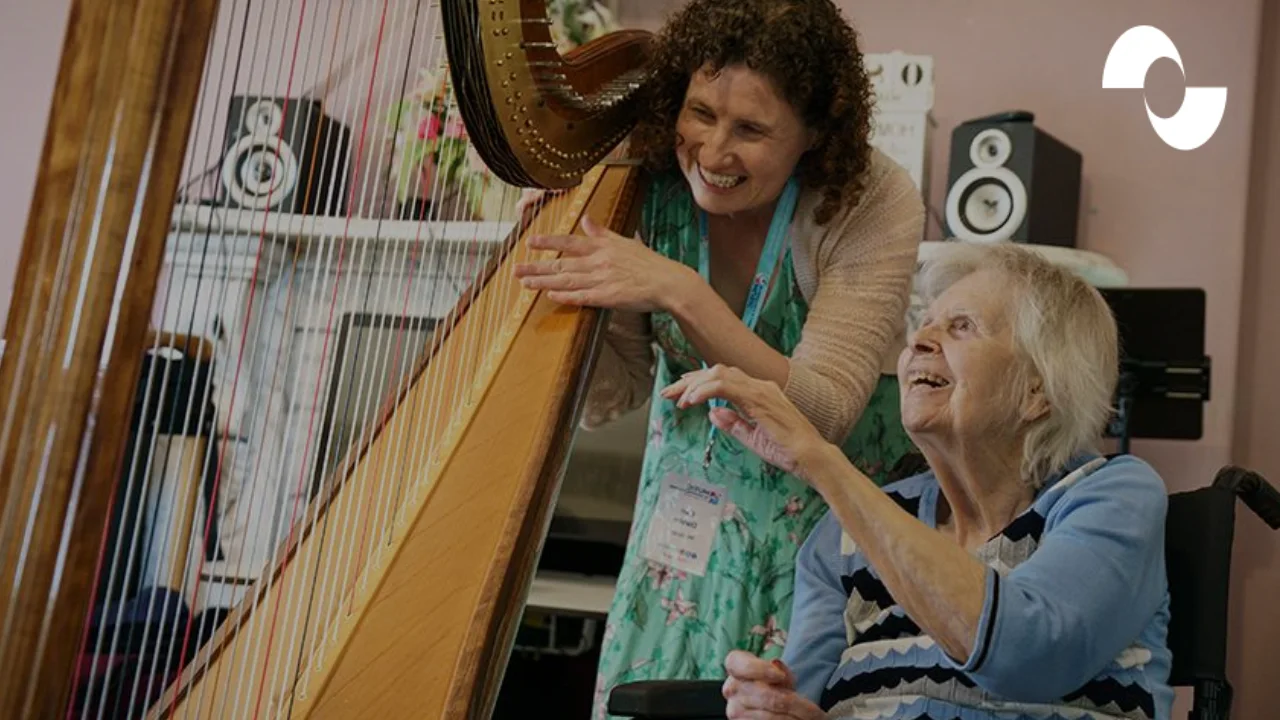Music is often called the universal language of emotions it has the power to heal, connect, and bring joy across all generations. For older adults living in care homes, music can be especially powerful. Songs from their youth spark cherished memories, create social connections, and enhance overall wellbeing.
At care home events, nostalgic music is more than entertainment it’s therapy, joy, and a bridge to the past. Let’s explore why nostalgic music brings happiness to residents and how it transforms care home activities.
1. Music Unlocks Precious Memories
For many seniors, hearing a familiar song from the past can trigger vivid memories. A tune from the 1950s or 60s might remind them of their first dance, a wedding, or a special moment with loved ones.
This memory connection is especially meaningful for residents with dementia or Alzheimer’s, as music can often reach places that words cannot. Nostalgic music helps bring back moments that may otherwise feel forgotten.
2. Creates a Sense of Belonging and Identity
When residents sing along to songs from their youth, they reconnect with their own identity and history. This strengthens self-esteem and reinforces their sense of belonging in the world.
For example, hearing a popular song from their teenage years allows them to feel youthful again, reliving the energy and joy of that time.
3. Improves Mood and Reduces Stress
Nostalgic music has been shown to reduce anxiety, stress, and depression in older adults. The familiar melodies release endorphins, creating feelings of comfort and joy.
At care home events, the atmosphere instantly becomes lighter and happier when familiar songs are played. Residents often smile, clap, or even dance along, lifting the mood for everyone present.
4. Encourages Social Interaction
Music naturally brings people together. At care homes, nostalgic songs encourage residents to sing along, share stories, and connect with one another.
A group sing-along of classic hits creates laughter and bonding, reducing feelings of isolation that some elderly residents may experience. Music transforms the event into a shared celebration.
5. Boosts Physical Engagement
Live performances of nostalgic music often encourage movement, whether it’s clapping, tapping feet, or even dancing. This gentle physical activity helps improve mobility, coordination, and overall health.
Even residents with limited movement can participate by humming along or tapping their hands, creating a sense of inclusion.
6. Enhances Care Home Events
Nostalgic music adds a unique touch to care home events such as birthdays, holiday parties, and social evenings. Instead of just background noise, live singing turns the event into an interactive and memorable experience.
Professional singers who specialize in performing for seniors know how to create the right atmosphere balancing upbeat songs with softer melodies that soothe and comfort.
7. The Science Behind Nostalgic Music
Research shows that music activates parts of the brain associated with memory and emotions. For seniors, hearing familiar songs can even improve cognitive function and stimulate conversations.
This scientific backing highlights why nostalgic music is considered an important tool in music therapy and elderly care.
Conclusion
Nostalgic music is more than entertainment at care home events — it’s a pathway to joy, memory, and human connection. It uplifts spirits, encourages social interaction, and makes residents feel valued and alive.
✨ If you want to create truly special moments at care home events, consider inviting a professional live singer.
👉 Book Abdul Hafiz to bring the gift of music to your next care home event and see the joy that nostalgic songs can inspire.
Frequently Asked Questions (FAQs)
1. Why is nostalgic music important for seniors?
It helps seniors recall memories, improves mood, and provides emotional comfort, especially for those with dementia or Alzheimer’s.
2. What type of nostalgic music works best at care home events?
Songs from the 1940s–1970s are often most effective, depending on the residents’ age and cultural background.
3. Can live singers perform for residents with dementia?
Yes! In fact, live singers are especially impactful as they create emotional connections and bring a personal touch that recorded music cannot.
4. How does music therapy differ from live singing?
Music therapy is a structured approach guided by a therapist, while live singing focuses on entertainment and emotional engagement — but both bring joy to seniors.
5. How often should care homes organize music events?
Regular sessions (weekly or monthly) help maintain a positive atmosphere, improve residents’ wellbeing, and provide ongoing engagement.
